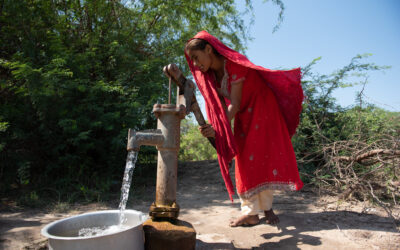METHODS
Deep DemocracyDeep Democracy is a practical method to start dialogue and discussion where we actively search for the wisdom of the minority. Alternative voices are being heard, explored and are part of decision-making. The effect is that decisions are widely supported and optimally make use of the potential of the group. This new view on decision-making and group dynamics enables real cocreation.
Look for the wisdom of the minority and take better decisions with groups
When is it applicable?
Deep Democracy is a practical facilitation method for everybody who works with groups or individuals. For example: leaders, managers, facilitators, teachers and trainers. The method is powerful in one-on-one conversations as well as in working with large groups. The starting point is diversity in the broadest sense of the word. The method offers tools to deal with this in groups. Disagreements and conflicts are explored in respectful and constructive ways together. This leads to stronger decisions that are supported by everyone. It is a useful approach for everyone who wants to make maximal use of the potential of a group. Through Deep Democracy’s conversational models and guiding techniques, nobody is left out, diversity is considered a given and the wisdom of the minority is used in decision-making. They can be used in teams, the class room, with stakeholders and for conversations between groups.
How does it work?
Deep Democracy is a practical method that makes group dynamics visible and allows you to intervene. The focus in not on the individual, but on the group as a whole. The group has a group conscious and a group unconscious. The latter holds the potential and wisdom of the group. We want to reach this by creating a safe environment where all things that need to be said can be said. This ensures that the group conscious grows and that we gain more information about what goes on in the unconscious of the group. If it is not safe enough to speak in a group, we will not be able to get optimal information. This is because people share opinions, feelings or points of view. Especially the reasons why manager X’s idea or the consensus of the group are not such a great idea contain valuable information for the group. If people do not feel heard or feel ignored, this can lead to resistance. We say ‘yes’ to a decision, but act like ‘no’. Or we delay the cooperation. This resistance is not efficient for the group. Deep Democracy ensures that people do not show resistance or become aware of it. They will feel heard and their minority perspective is valued.
The Lewis method of Deep Democracy has five practical steps. These steps make it possible to work with the rational as well as emotional aspects of the decision-making process in a group. The basic model comes down to the following five steps:
- Collect all perspectives (even those opposing your own)
- Actively look for the alternative voices (does anybody think something completely different?)
- Spread the alternative (who shares this opinion?)
- Add the wisdom of the minority to the decision of the majority (what do you need to go along with the decision of the majority?)
- Dive into the unconscious
History
During post-apartheid, Myrna and Greg (†) Lewis were asked by Eskom (one of South Africa’s main electricity companies) to transform a department with a racist hierarchy to a department where people work together on an equal level. Myrna and Greg soon found out that the problem was too big to be solved by external advisors alone. They decided to make people aware of the emotions that came with the racist decision-making and they gave people the tools to solve conflicts at work. In three years, Myrna and Greg trained 1000 employees of the company. This method is now used in more than twenty countries across the whole world in various sectors: business, politics, health care, education, non-profit and the family and private sphere (therapeutic applications).
More info:
- Participate in the upcoming Deep Democracy Level 1 training
- Download the flyer
- Read the article published in OR Magazine
- Contact Lisette or Monique
Transformative Futures for Water Security initiative
Water security is key to our collective future, yet many places in the world experience severe water insecurity. We have to ensure availability and sustainable management of water and sanitation for all (SDG 6). Perspectivity facilitated this initiative for the Global South on the future of water security in the lead-up to the UN 2023 Water Conference.
Article: ‘Deep Democracy for 100% support’
Monique Janmaat published an article about Deep Democracy: how can it help you to make broadly supported decisions, using the wisdom of the minority?
Action coalition against loneliness in Enschede
Over 1 million people in the Netherlands indicate that they experience serious feelings of loneliness. Loneliness is a part of life and can happen to anyone. However, almost half (46%) of the people living in Enschede regularly suffer from feelings of...
Successfully Guiding Theories of Change in The Netherlands
The alliances of 'Samen Werkt Het' (Together It Works) and 'Iedere Patient is Anders' (Every Patient is Different) developed their Theories of Change facilitated by Hanne and Lisette and were awarded the highest quality scores of all...
Our toolbox
In our work, we use a broad range of methodologies and approaches that lean on decades of experimental research. We gratefully build on the theories and concepts developed by our teachers and colleagues. To achieve sustainable results, we determine which method fits every project best.
Methods we frequently use:





